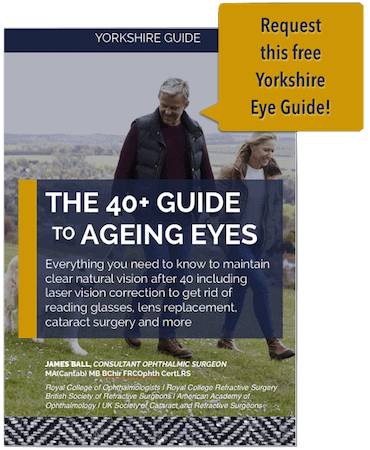
Laser eye surgery treatment: Does laser eye surgery cause dry eyes?
Does laser eye surgery cause dry eye? Absolutely, it does, temporarily, and we know the mechanism. Laser eye surgery interrupts the nerves in the front of the cornea. Corneal sensation is critical to creating a feedback loop that generates tear production. So, when you reduce corneal sensation, you decrease abduction and, yes, the eyes will become drier.
Interestingly, soon after laser eye surgery, patients will feel quite comfortable, but the quality of their vision will be affected if their eyes become dry. So, they don’t blink, and they think, “Wow, this is amazing!”
Then, their condition will destabilise because their eyes are a little dry. So, we work with the patients because the effect is temporary. The nerves grow back, and we know that LASIK laser eye surgery takes six months. The nerves grow back, the sensation goes back to normal, and tear production goes back to where it was.
For patients who wore contact lenses, the surgery will be a win for them because they will not have to wear contact lenses anymore. Contact lenses cause dry eye, and so, once these people no longer have to wear contact lenses, they can look forward to an improvement in the tear film and a reduction in dry eye symptoms because they are no longer wearing contact lenses.
Smile laser eye surgery and the keyhole laser eye surgery result in a more rapid recovery in dry-eye symptoms. So for these patients, typically, it’s only about three months before they get back to normal. So with ReLEx laser eye surgery, it’s a manageable, short-term problem. Onto it’s straight away, and we know it’s coming, so we carefully assess patients after the treatment. Some patients will use little silicone plugs in their tear draining, just like putting a plug in a bar holding the moisture that they make themselves and with the writing in the form of a topical lubricant, which we also provide for them. The need for lubricants diminishes as the weeks go by. We can almost take the plugs out after a couple of months. In fact, the minority of patients who need those is very very rare.
You come across the patient who experiences some longer-term discomfort, and I think it’s because we’re all different. It’s because the nerves have to regenerate in exactly the right pattern, and occasionally, that can take longer to settle down. So there might be an individual nerve that is just jangling away and can give people a dry-eye sensation even though the eye looks normal. The tear quality actually returns to a normal level. We have some medicines we can use to manage that, and invariably it settles down. It just takes a bit long. We look after people through that, and that’s important to make sure that we carry cures until they feel comfortable because it is one-size-fits-all. It’s not often back after three to six months. Almost everyone does, but for those people who don’t, I work with them until I’ve gotten them to feel comfortable again, and I’ve never been unsuccessful in getting people back to the state in which they do feel comfortable.

